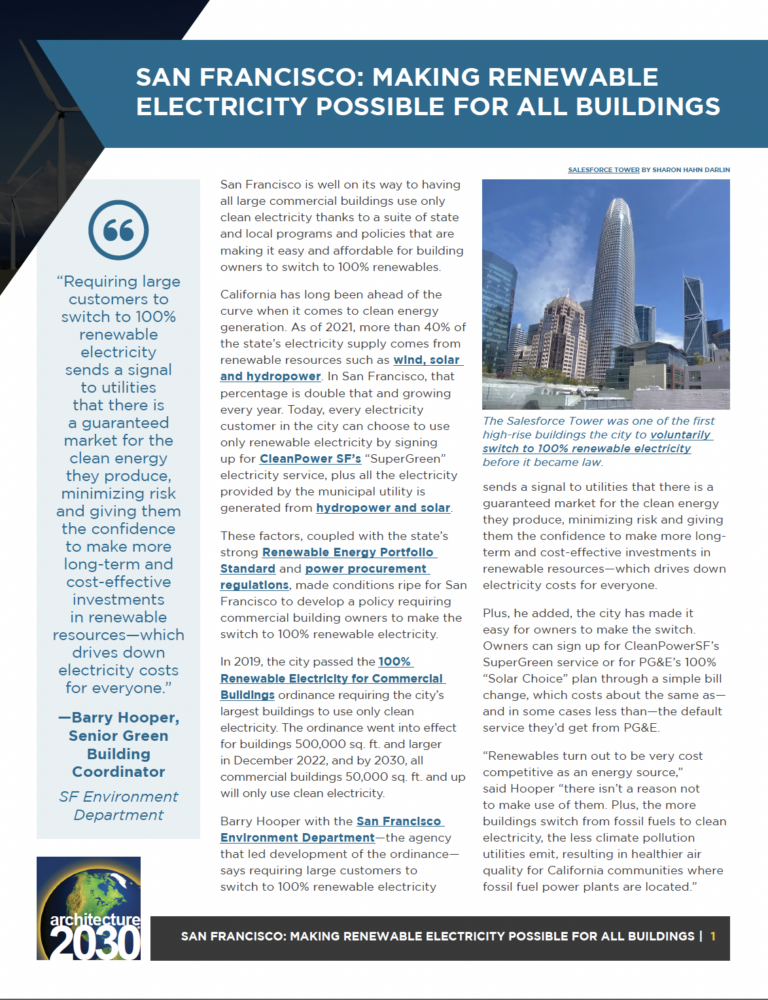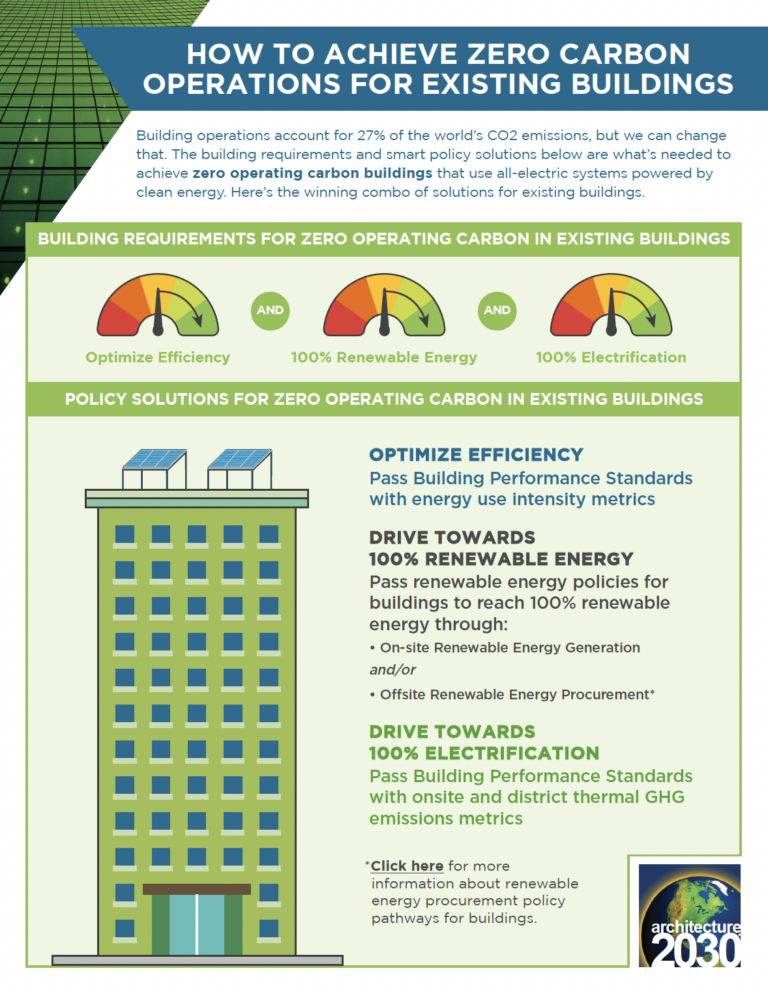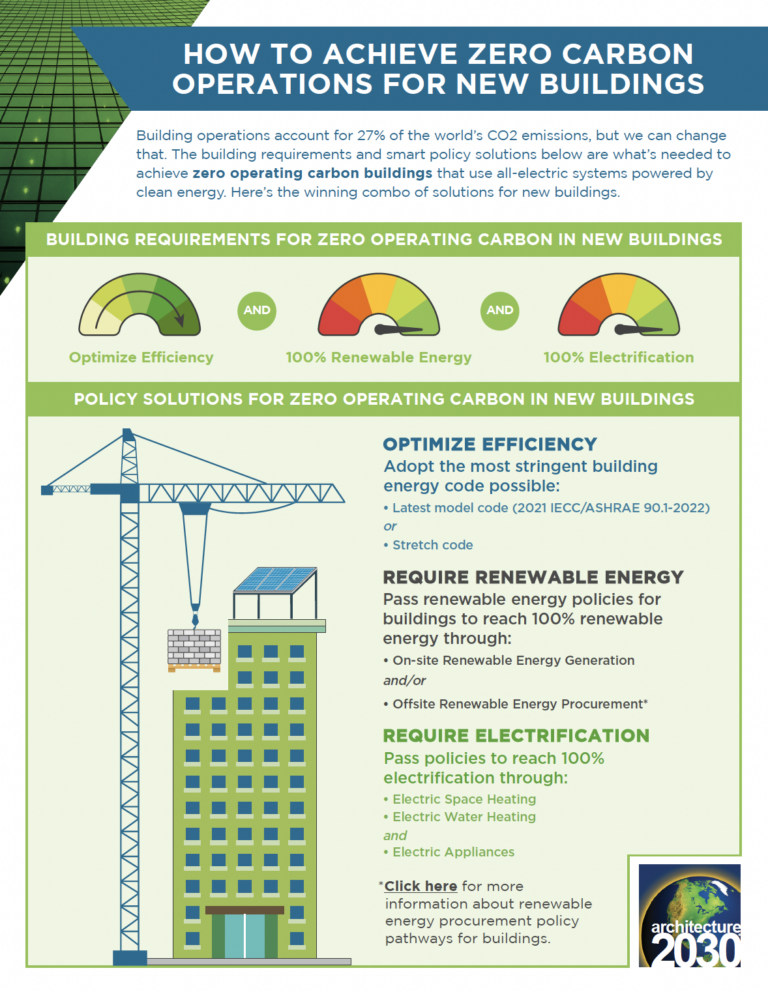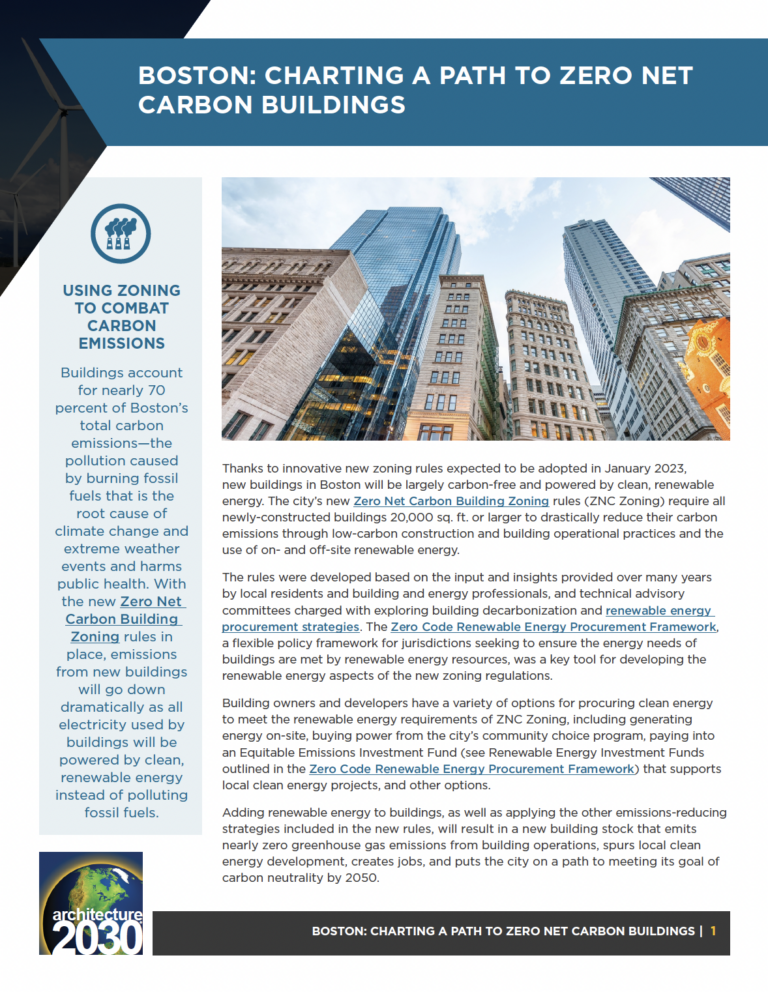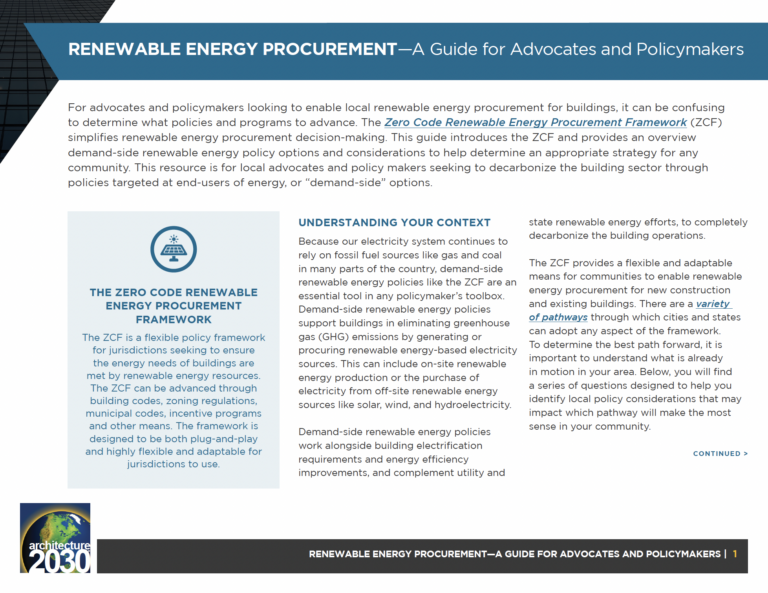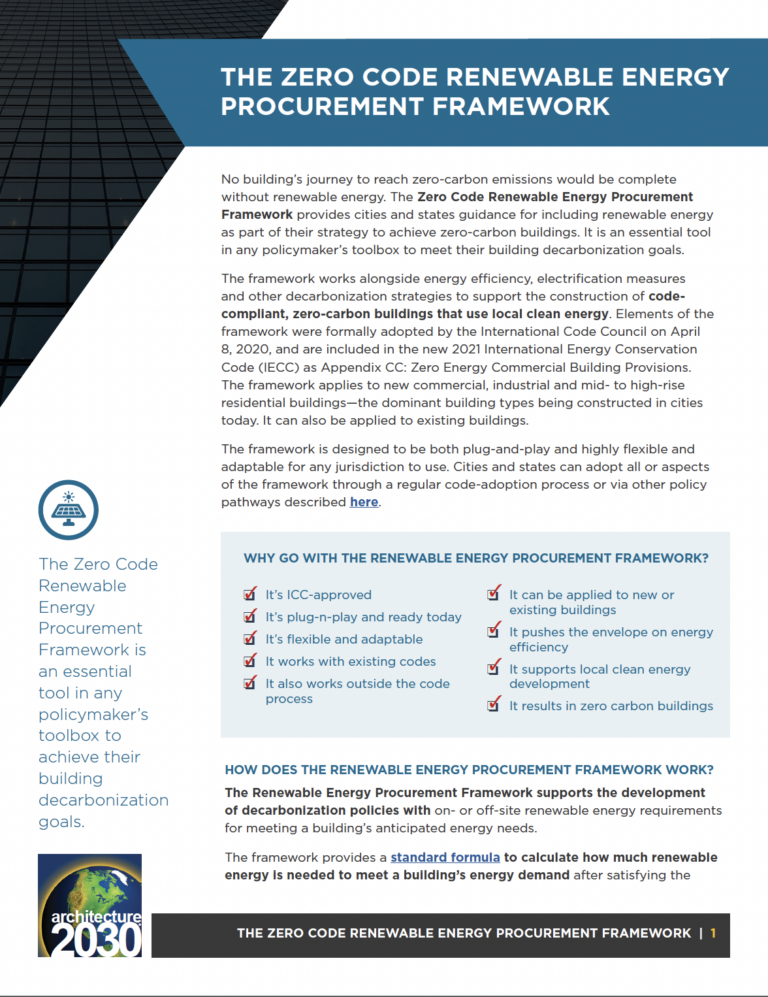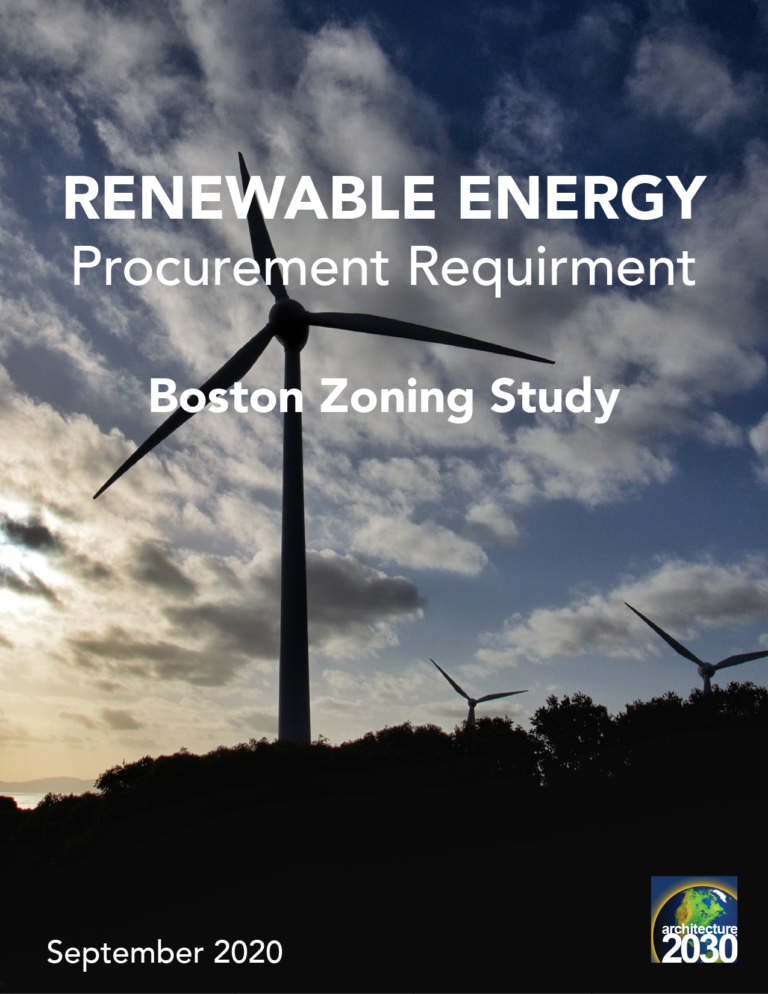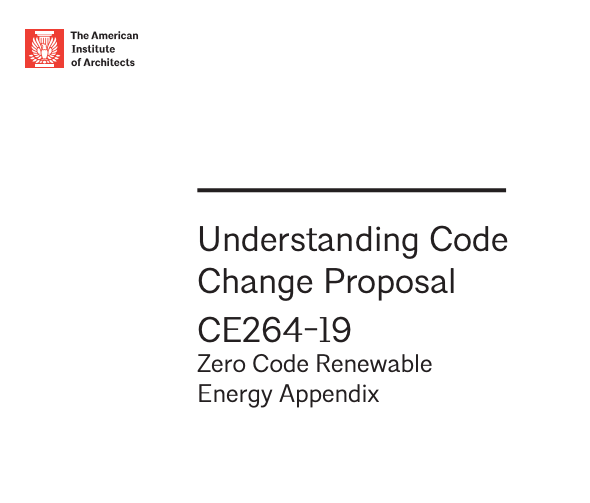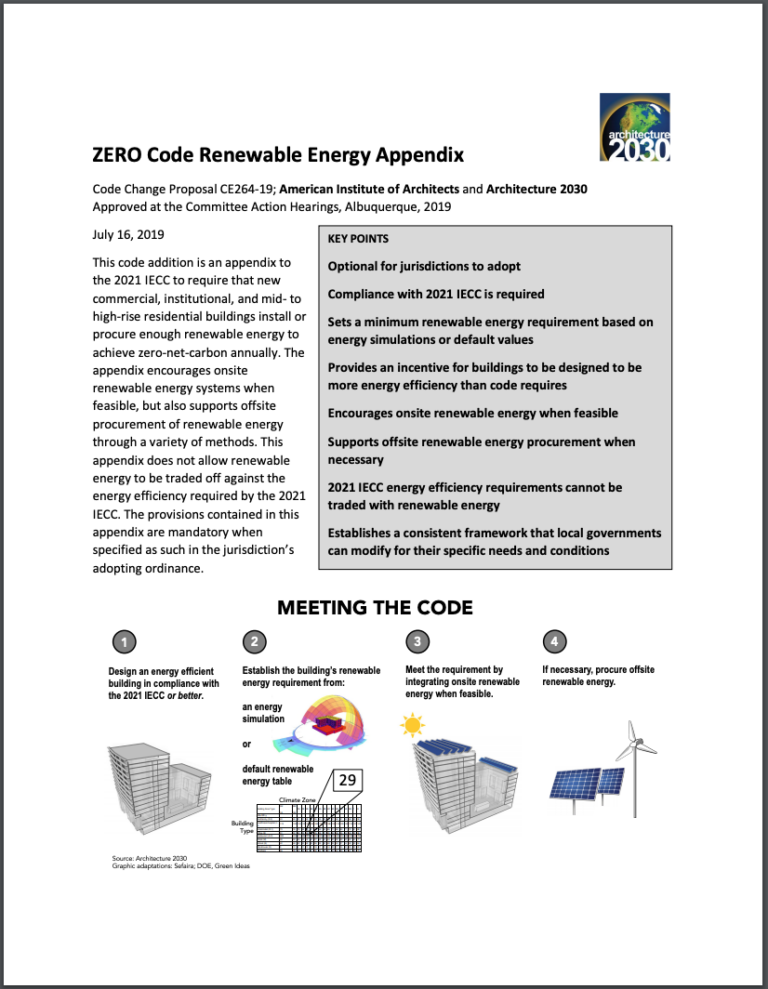The Zero Code
RESOURCES & PUBLICATIONS
June 2023
A Renewable Energy Procurement Policy Roadmap expanding on the Pathways To Adopt The Renewable Energy Procurement Framework guide, providing policymakers and advocates with details on the implementation processes for each pathway so that they may determine which one will work best for their local jurisdiction.
May 2023
Template form + form instructions jurisdictions can adapt for use by building owners and code enforcement and verification officials for Zero Code Framework compliance.
May 2023
San Francisco is well on its way to having all large commercial buildings use only clean electricity thanks to a suite of state and local programs and policies that are making it easy and affordable for building owners to switch to 100% renewables.
April 2023
Building requirements and policy solutions for achieving zero operating carbon in existing buildings.
April 2023
Building requirements and policy solutions for achieving zero operating carbon in new buildings.
January 2023
Thanks to innovative new zoning rules expected to be adopted in January 2023, new buildings in Boston will be largely carbon-free and powered by clean, renewable energy. Learn how Boston is using zoning to combat carbon emissions.
January 2023
For advocates and policymakers looking to enable local renewable energy procurement for buildings, it can be confusing to determine what policies and programs to advance. This guide introduces the ZCF and provides an overview of demand-side renewable energy policy options and considerations to help determine an appropriate strategy for any community.
May 2022
Join Architecture 2030 and the Zero Code Network to hear first-hand accounts from two cities – Boston and San Francisco – that are now implementing ambitious building decarbonization plans leveraging renewable energy procurement.
July 2021
With the Zero Code Renewable Energy Procurement Framework jurisdictions can help their communities reap the benefits of putting people back to work after more than a year of job losses due to COVID-19, by requiring more energy efficient construction practices and local renewable energy production. Learn about the paybacks of powering buildings with locally-produced renewable energy, and read through examples of real-world projects that demonstrate constructing an energy-efficient building powered by clean energy can be both achievable and cost-effective.
July 2021
Across the US, cities, counties and states are exploring strategies to decarbonize buildings while simultaneously advancing health and equity goals for their communities. The Zero Code Renewable Energy Procurement Framework can be a powerful tool to advance local health and equity priorities.
May 2021
The Zero Code Renewable Energy Procurement Framework provides cities and states guidance for including renewable energy as part of their strategy to achieve zero-carbon buildings. It is an essential tool in any policymaker’s toolbox to meet their building decarbonization goals.
May 2021
The Zero Code Renewable Energy Procurement Framework can be advanced both inside and outside the building energy code adoption process. Use this guide to find the best option for your city or state, and note that some pathway options can be used in tandem.
September 2020
The City of Boston is considering renewable energy procurement as a requirement for the City. Buildings proposed to be constructed would be required to install on-site renewable energy and procure off-site renewable energy. The requirement is intended to offset building energy use and achieve zero-net carbon.
July 2020
This webinar, presented by Architecture 2030 COO Vincent Martinez in July 2020, gives an overview of the Zero Code.
July 2020
These slides accompany a presentation by Architecture 2030 COO Vincent Martinez in July 2020, which gives an overview of the Zero Code.
July 2019
A Guidance Document for Building Code Officials Published by the American Institute of Architects.
July 2019
Architecture 2030 and AIA created this fact sheet to support the proposal CE 264-19 for the 2021 IECC.
December 2020
This technical support document describes several potential options for off-site procurement of renewable energy within the context of codes, and presents a process for evaluating and assigning a weight to each procurement method. The technical support document has been updated to accompany the Zero Code 2.0.
2018
This technical support document provides background and technical information in support of the Zero Code for California developed by Architecture 2030.



